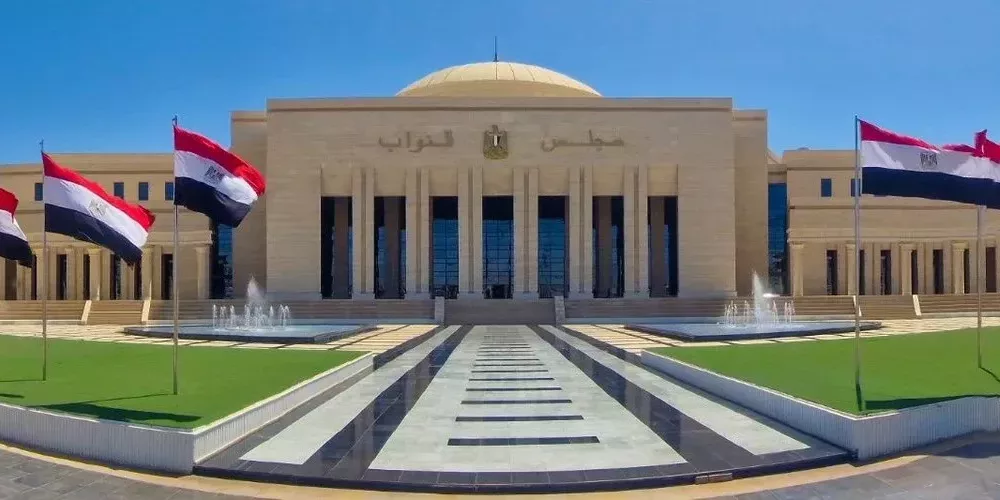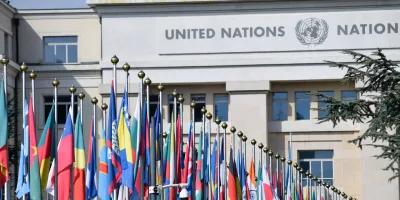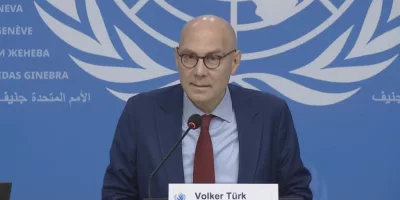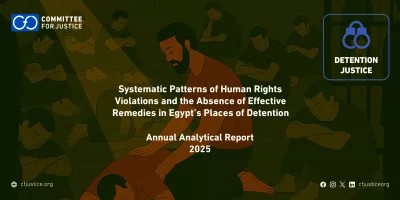Egypt’s 2025 House of Representatives elections were marred by chaotic procedures, opaque decision-making, and direct interference by President Abdel Fattah al-Sisi, underscoring the fundamentally sham nature of the process and the lack of independence of the National Elections Authority (NEA), the undersigned Egyptian human rights organizations said today.
On 17 November 2025, the NEA abruptly reversed its week-long narrative defending the integrity of the voting process—only hours after President Sisi posted a public message instructing the supposedly independent body to intensify scrutiny of vote-counting, investigate irregularities, and even cancel results where necessary. This extraordinary intervention, followed by the NEA’s immediate compliance, lays bare the extent to which Egypt’s electoral process and the entire political field is beholden to Sisi’s will.
Rather than signaling a real change in favor of election integrity and genuine democratic representation, Sisi’s statements confirm that elections in Egypt continue -as has been the case since the 2015 elections- to be directed by the obscure political interests of those in power and the various security agencies and the new networks of beneficiaries among politicians, making the Parliament redundant as we have previously highlighted.
President Sisi’s directives can lead to the redistribution of seats among security agencies and pro-government actors, but certainly not to a substantively different election outcome involving genuine democratic representation, which would require conditions that have been thoroughly eliminated or prevented in Egypt.
The closure of public space and the political sphere, the suppression of independent and critical voices, the repression of peaceful dissent and the targeting of genuine democratic opposition prevent the emergence of solid, well-rooted and representative political movements capable of representing Egyptians and defending their interests. The manipulation and engineering of electoral lists by security bodies and the arbitrary disqualification of candidates maintain control of the political field in the hands of the security apparatus. Former political prisoners and those held in pretrial detention continue to be unlawfully deprived from the exercise of their political rights through their removal from the voter rolls; this has even affected persons who have obtained court rulings restoring their rights.
The undersigned Egyptian organizations affirm that the only path to reversing the current crisis is for the Egyptian authorities to end all executive interference in the electoral process, dismantle the security-led machinery and legislative structures that predetermines political outcomes, and take immediate steps to restore the basic conditions for genuine good governance and democratic participation. This includes holding accountable those responsible for election-related crimes, which led to the annulment of results and the rerun of elections in nineteen constituencies in the first phase alone. As long as elections are engineered through opaque security decisions, guided by presidential directives, and conducted in an environment where opposition figures, independent media, and civil society are silenced and prisoners of conscience and political prisoners are not unconditionally released, no ballot can express the will of the Egyptian people. No election can be fair as long as there are defective electoral laws and an electoral commission lacking the necessary independence, willingness, and capacity to ensure fair elections and protect the rights of both candidates and voters. At this point, the only meaningful action the President can take is to cancel this sham electoral process and to confront and remedy the deep structural failures—legal, institutional, and political—that make free and fair elections impossible.
Background
Voting took place on 10-11 November in the first phase of Egypt’s 2025 House of Representative elections. Foreign correspondents reported low turnout; the few Egyptian independent media outlets also reported multiple irregularities, notably vote-buying and campaigning during electoral silence, “from Giza to Aswan”. El Manassa added that “empty ballots, staged crowds, and vote buying persisted on day two of House elections”. Early on, candidate Nashwa Al-Deeb in the Munira and Giza district, announced her withdrawal from the race due to the lack of integrity of the process. Many candidates and opposition parties issued statements denouncing serious violations and irregularities, taking to social media to call on the authorities to intervene and allow a vote recount.
As was the case in previous elections, parliamentary seats on the electoral list had been allocated by security agencies to regime loyalists who paid the most. One candidate complained on a social media live stream that he was asked to pay 20 million EGP to secure his seat, which he refused to do. He was detained after the livestream and charged with “spreading false news”, then ultimately released on bail. Moreover, the manipulation of results began at the very start of the candidacy period, when the electoral commission decided to disqualify candidates on flimsy grounds, including previous convictions in political cases or failure to perform military service, based on the sole decision of the Ministry of Defense. These exclusions affected even former MPs who were opposition members or independents and had not been barred from running in previous elections. The disqualified candidates’ appeals of these illegal practices in court were all rejected by the Supreme Administrative Court.
While this wave of complaints from different governorates fueled growing skepticism, the NEA stuck all week to its public narrative that turnout was high and the voting had proceeded well, without major irregularities.
On 17 November, President Sisi issued a statement urging the NEA to “reveal with complete honesty the true will of voters,” and explicitly authorized the cancellation of results where “it is impossible to ascertain” that will. The same day, the NEA held an emergency press conference, pledging to re-examine all complaints and assuring the public that there was no deadline to report violations, marking a stark departure from its earlier stance.
Signatories:
- Cairo Institute for Human Rights Studies
- Egyptian Initiative for Personal Rights
- Law and Democracy Support Foundation
- Committee for Justice
- Egyptian Front for Human Rights
- Sinai Foundation for Human Rights
- Egyptian Human Rights Forum
- Al Nadeem Center for Rehabilitation of Victims of Violence
- EgyptWide for Human Rights
- Egyptian Commission for Rights and Freedoms (ECRF)






